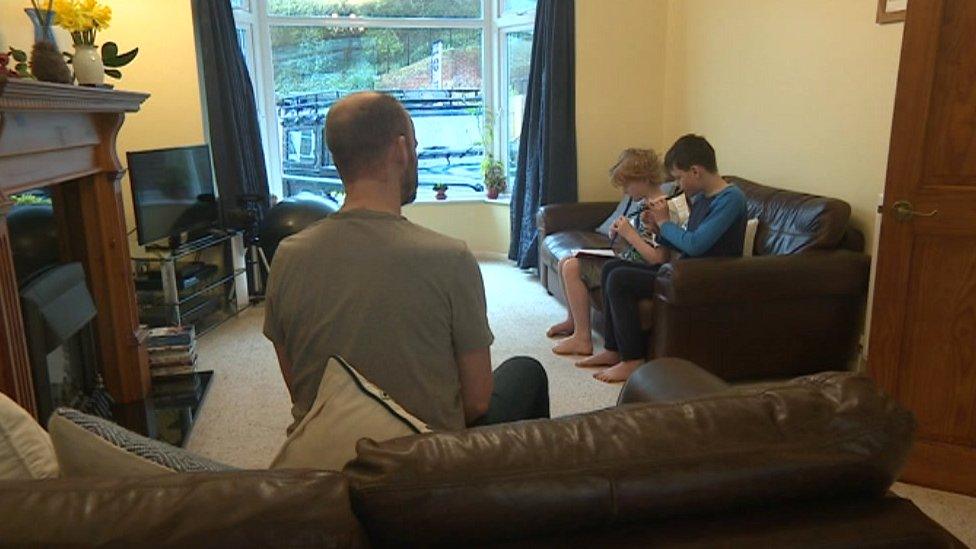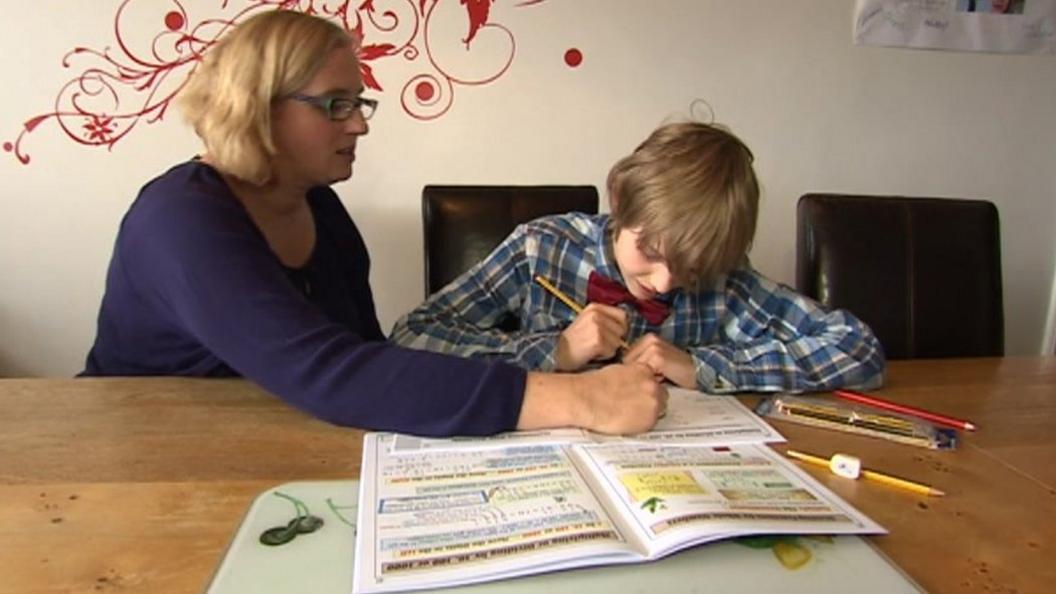North East home-schooled children numbers double
- Published

Jamie Driscoll home-educates his sons, Leon and Nelson
The number of children home-educated in the North East and Cumbria has more than doubled over five years, new figures have revealed.
Ten local authorities in the region responded to Freedom of Information requests from BBC Sunday Politics.
The rise has been welcomed by supporters of home education.
But the chairman of a consortium of local safeguarding children boards said he was concerned over a lack of proper monitoring.
Figures show the total number of pupils recorded as home-schooled rose from 802 in 2011-12 to 1,768 in 2016-17.
However, because there is no compulsory registration it is believed the actual number is likely to be higher.
Supporters of home education say families have grown frustrated with the exam-focused culture of schools and want an alternative that better suits individual needs.
Jamie Driscoll, who home-educates his 10- and 11-year-old sons, said: "It's almost them choosing their education - and that builds a real sense of responsibility and motivation."
Many parents chose to take children out of school, he said, "as a result of the kids not fitting into this highly-regimented, highly test-based system".
'Safeguarding risk'
Sir Paul Ennals, who chairs the local safeguarding children boards for Gateshead, South Tyneside and Sunderland, said: "Most of the children who have been home educated are doubtless being well looked-after and well-educated by their parents who are doing it for all the right reasons.
"But there has always been a small number of children who represent a real safeguarding risk."
Gateshead Labour MP Ian Mearns said inspection of home education was required to stop youngsters "falling through the cracks".
There is also growing concern that the pressure on schools to improve results is leading some to encourage parents of struggling pupils to remove into home education, even though the families are ill-equipped for the task.
Mark Tilling, head of High Tunstall College of Science in Hartlepool said: "[With] children who do not engage in their studies for particular reasons, or have friendship issues, it's sometimes an easy option to stay at home.
"I understand that some colleagues might see it as a way of saying 'Ok, they are not in my school anymore - I don't have to worry about them.' But it's wrong. Children should be in school."
See more on The Politics Show, BBC1, 11:00 GMT, Sunday, 18 March
- Published27 November 2017
- Published15 June 2016
